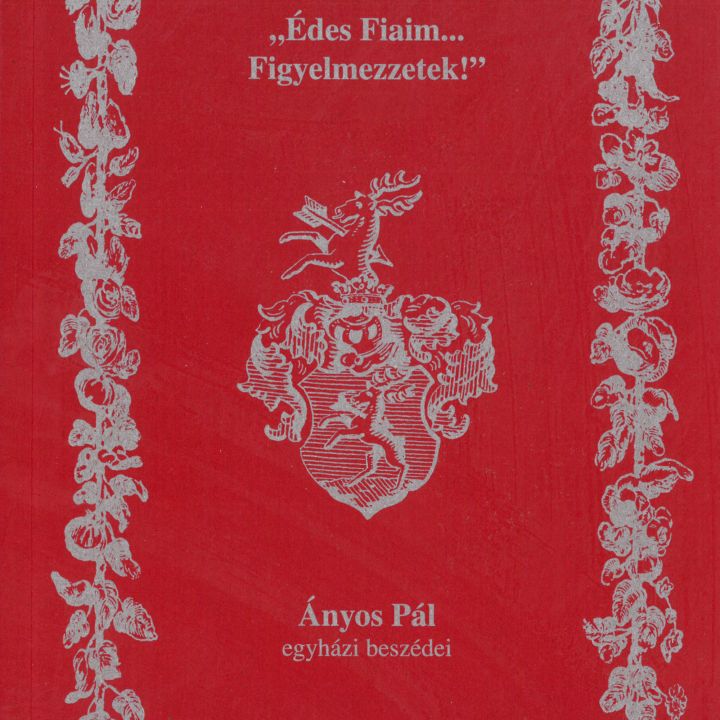On the initiative of the editors József Jankovics and Erzsébet Schiller we were able to publish his ecclesiastical speeches, following the publication of the Ányos volume of his poems two years earlier. Pál Ányos was a Pauline monk by vow and service, enriched by his poetic work and this is why he wished to show the valuable writings of his ecclesiastical activities.
This is how the two literary historian editors write at the beginning of the afterword:
"The monk is also a poet. His poems rarely reveal that their author is a monk, but sometimes the poet's deeply religious face shines through. Just as the speeches do not refer directly to the poet, there are many common traits of the conscious cultivator of the Hungarian literary language, the struggling poet and ecclesiastical teacher. It was our aim to present this and make it accessible when we published Pál Ányos' ecclesiastical speeches.
His sermons require a strong, engaging speaker. The structure of the texts, the flexibility of his language shows that Ányos was not only at home in poetry, but also well versed in the prose poetics of the period and well versed in and applied rhetorical principles. Perhaps the most striking feature of his speeches is his focus on his purpose - mainly to teach and persuade. Hence - or towards - all his rhetorical and sometimes poetic devices. Structurally,all his texts are based on cyclicity, on repetition. Repetition adds a kind of surplus knowledge, repetition becomes intensification - the novelty that adds to a previous statement or image and the rhythm of the texts serve their purpose together."
The book contains seven reflections from a school (three-day) retreat and a translation of a Latin translation of his speech for the election of a provincial superior (1782).
Castle Street Workshop Books 19 - Veszprém
Its publication was supported by: the Táncsics Foundation, the local governments of Veszprém and Fejér counties. Mentors Ferenc Csabai, Ottó Fenyvesi


